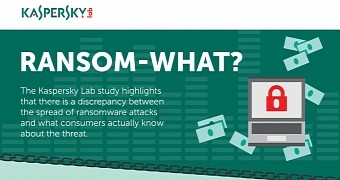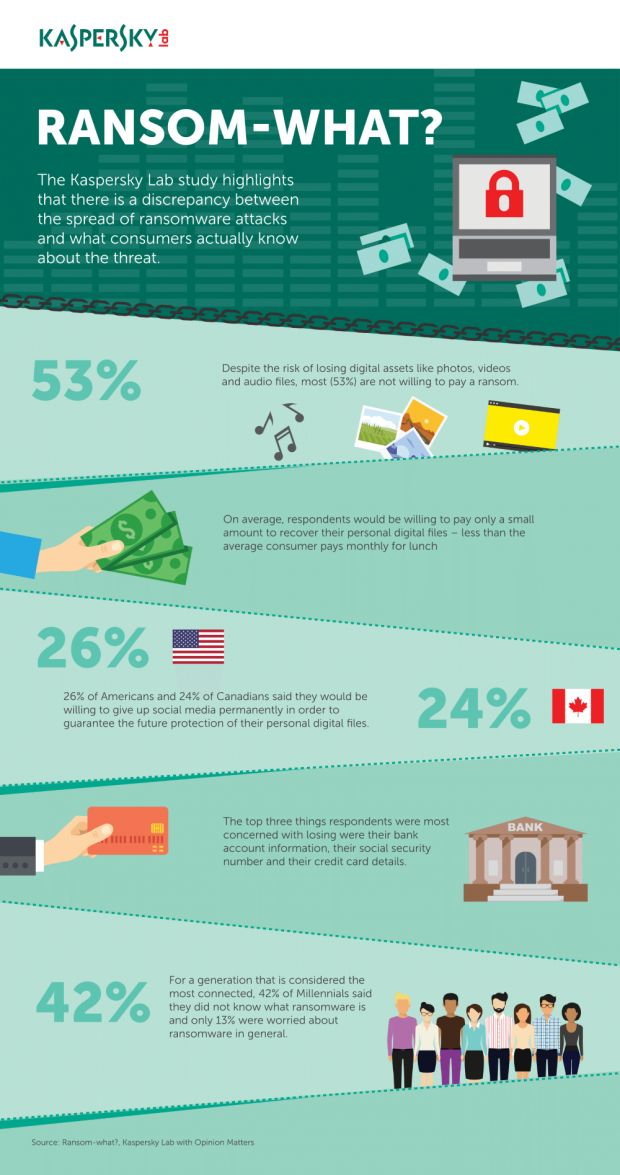A Kaspersky study of over 5,000 users in Canada and the US reveals that even if ransomware is today's most dangerous and prevalent malware infection, a lot of regular users have no clue what it is and what it does.
The study shows that while almost all security experts are sweating only by thinking of getting infected with ransomware even by accident, almost half of the surveyed users have no clue what it is, or that they can lose critical data after such infections.
Kaspersky says that users were more scared about other malware categories such as viruses, trojans, and spyware, compared to ransomware, which only 16 percent of the around 5,000 users said they feared. Of the same 5,000, 43 percent said they didn't know what ransomware was, to begin with.
An additional nine percent of the 5,000 thought that ransomware refers to someone hacking your social media account and holding it for ransom.
People don't know how to fix ransomware infections
This lack of knowledge regarding what ransomware is also explains why a big chunk of users don't know how to deal with it. A quarter of survey participants said the best method to fix a ransomware infection is to disconnect the computer from the Internet, which in real life doesn't help at all.
Furthermore, 15 percent of Americans and 17 percent of Canadians think that turning off the device would also fix their problems. This practice can prove dangerous for some infections, if the ransomware is encrypting files at that particular time, resulting in the interruption of the encryption process that in some cases can lead to permanent data failure.
Of course, for some other ransomware families, this could actually save the user's data, but it's better not to play this Russian roulette game at all.
Despite facing the possibility of losing their files permanently, 53 percent of respondents said they were not willing to pay the ransom. This result is consistent with the conclusions of a similar Bitdefender study.
Some people have no clue what ransomware is
And to show how little people know about how ransomware works, in one question Kaspersky asked respondents of the things they'd hate to lose in a ransomware attack.
The top three answers were bank account information, social security numbers, and credit card details. Ransomware does not "steal" this information, and if it encrypts the files where these details are stored, users can always retrieve it from offline sources.
So is it any wonder that so many people fall for ransomware infections these days? Most people barely know what it is, let alone how to prevent it and stay away from its distribution sources.

 14 DAY TRIAL //
14 DAY TRIAL // 